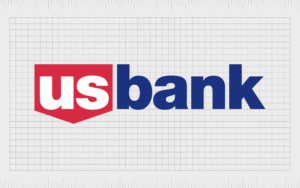Introduction
Banking services have evolved beyond traditional brick-and-mortar branches. With the advent of internet banking, customers can now access their accounts and perform financial transactions conveniently and securely from the comfort of their homes or on the go. This article explores the features and benefits of internet banking offered by banks in the United States, shedding light on how this technology has transformed the way individuals manage their finances.

US Bank
Accessibility and Convenience
Internet banking has revolutionized the way customers interact with their banks. By providing online access to a range of financial services, banks empower customers to handle their finances more efficiently. The convenience of 24/7 availability allows users to check account balances, view transaction history, and transfer funds at their own convenience, without the need to visit a physical branch during banking hours. Moreover, with the proliferation of smartphones and tablets, mobile banking apps have made these services even more accessible, providing customers with the flexibility to manage their accounts on-the-go.
You can read on: Tower loan
Account Management Features
US bank internet banking platforms offer a plethora of features that facilitate comprehensive account management. Customers can easily monitor their transactions, track expenses, and set up alerts for various account activities, such as low balances or suspicious transactions. These tools enable users to stay on top of their finances, promoting better financial planning and budgeting.
Furthermore, customers can initiate various transactions online, including fund transfers between accounts, bill payments, and setting up recurring payments. The ability to schedule payments in advance ensures timely bill settlements and eliminates the risk of missing deadlines. Online banking also allows users to order checks, request stop payments, and update personal information, reducing the need for manual paperwork and providing a seamless customer experience.

US BANK
Enhanced Security Measures
Ensuring the security and privacy of customers’ financial information is paramount for US banks offering internet banking services. Banks employ multiple layers of security measures to protect user data from unauthorized access and fraudulent activities. This includes robust encryption protocols, secure socket layer (SSL) technology, and multi-factor authentication mechanisms to verify user identities.
To combat identity theft and unauthorized transactions, many banks have implemented additional security features such as biometric authentication (e.g., fingerprint or facial recognition) and token-based verification systems. These measures provide an added layer of protection against potential threats, ensuring that only authorized individuals can access and perform transactions on the account.
Customer Support and Assistance
US banks recognize the importance of providing exceptional customer support for their internet banking users. They offer various channels for assistance, including dedicated helplines, online chat support, and comprehensive FAQ sections. Customers can seek guidance on using specific features, resolving technical issues, or reporting any concerns regarding their accounts. Prompt and reliable customer support helps foster trust and ensures that customers feel supported in their online banking endeavors.
Conclusion
US bank internet banking has revolutionized the way customers manage their finances, providing convenience, accessibility, and enhanced security. The ability to access accounts anytime, anywhere, and conduct a wide range of transactions has simplified financial management for individuals and businesses alike. The robust security measures implemented by banks safeguard customer information and prevent unauthorized access, instilling confidence in the online banking experience. As technology continues to advance, US banks will likely explore innovative features and services to further enhance the internet banking experience, offering customers more personalized and tailored financial solutions. Ultimately, internet banking empowers individuals to take control of their finances, providing a seamless and efficient banking experience that aligns with the demands of the modern world.
Frequently Asked Questions
What is internet banking?
Internet banking, also known as online banking or e-banking, refers to the electronic platform provided by banks that allows customers to access their accounts and conduct various financial transactions through the internet. It provides a convenient and secure way to manage finances without the need to visit a physical bank branch.
What services can I access through internet banking?
Internet banking offers a wide range of services, including checking account balances, viewing transaction history, transferring funds between accounts, paying bills online, setting up recurring payments, ordering checks, updating personal information, and accessing e-statements. Some banks may also provide investment management services, loan applications, and other specialized features through their internet banking platforms.
How can I access internet banking?
To access internet banking, you typically need to have an account with a bank that offers online banking services. Most banks provide a dedicated website where customers can log in using their unique username and password. Some banks also offer mobile banking applications that can be downloaded on smartphones or tablets, allowing access to internet banking services on the go.
Is internet banking safe?
Banks take significant measures to ensure the security of their internet banking platforms. They employ encryption technology, secure socket layer (SSL) protocols, and multi-factor authentication to protect customer data. However, it is essential for customers to take precautions as well, such as using strong and unique passwords, keeping their login credentials confidential, and avoiding using public Wi-Fi networks when accessing internet banking.
What should I do if I encounter issues with internet banking?
If you face any issues while using internet banking, most banks provide customer support services to assist you. You can typically find contact information, including helpline numbers and online chat support, on the bank’s website. Additionally, banks often have comprehensive FAQs or help sections on their internet banking platforms to address common queries and provide guidance on using specific features.
Can I use internet banking for business accounts?
Yes, many banks offer internet banking services for both personal and business accounts. Business internet banking may include additional features tailored to meet the specific needs of businesses, such as payroll management, bulk payments, invoicing, and account reconciliation tools. Business account holders can enjoy the convenience of managing their finances online, streamlining their operations and reducing paperwork.
Is there a fee for using internet banking?
The availability and fees associated with internet banking services can vary among different banks. While some banks may offer basic internet banking services free of charge, others may have certain fees for specific transactions or additional features. It is advisable to check with your bank regarding any applicable fees or charges associated with internet banking.

Leave a Comment